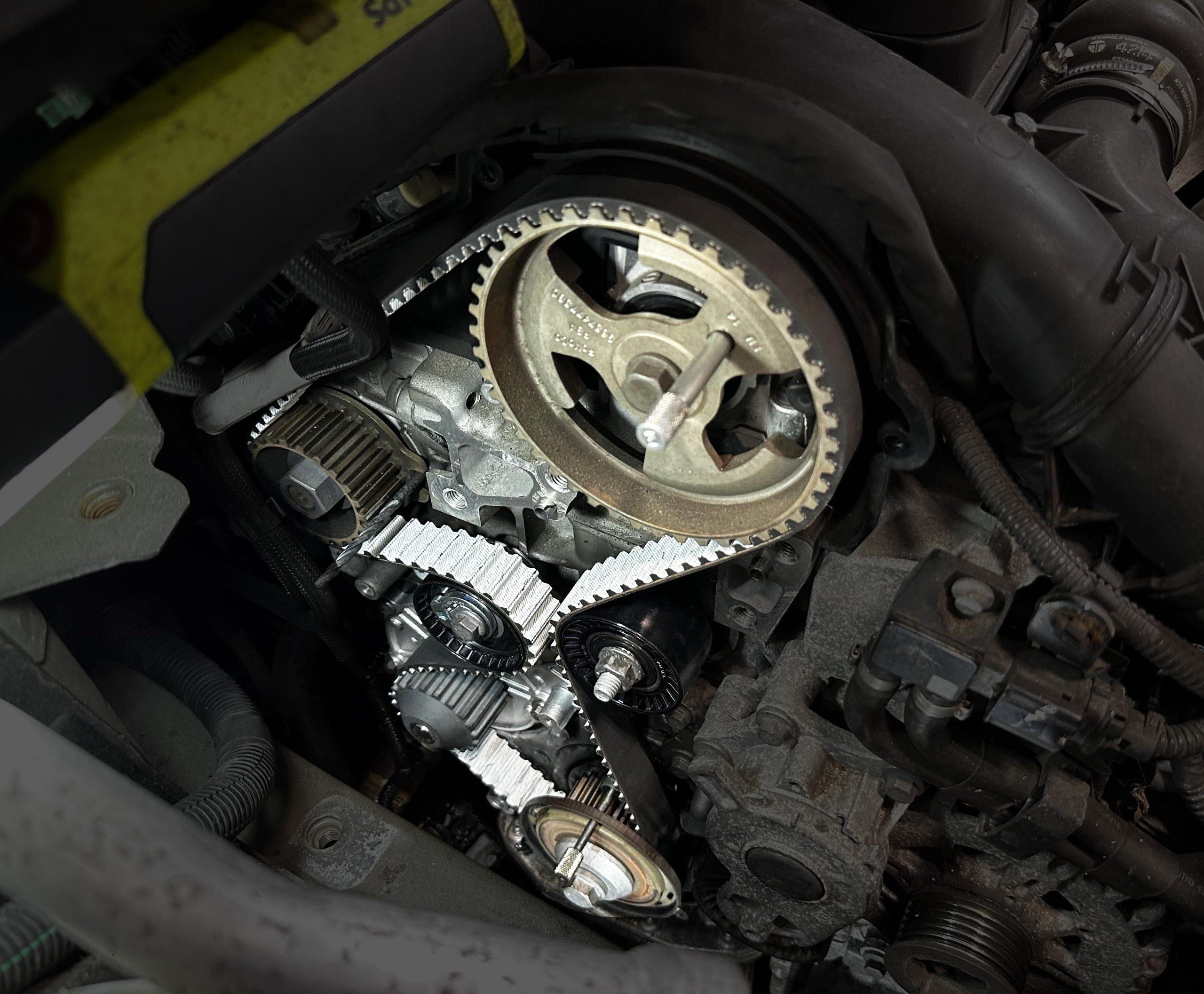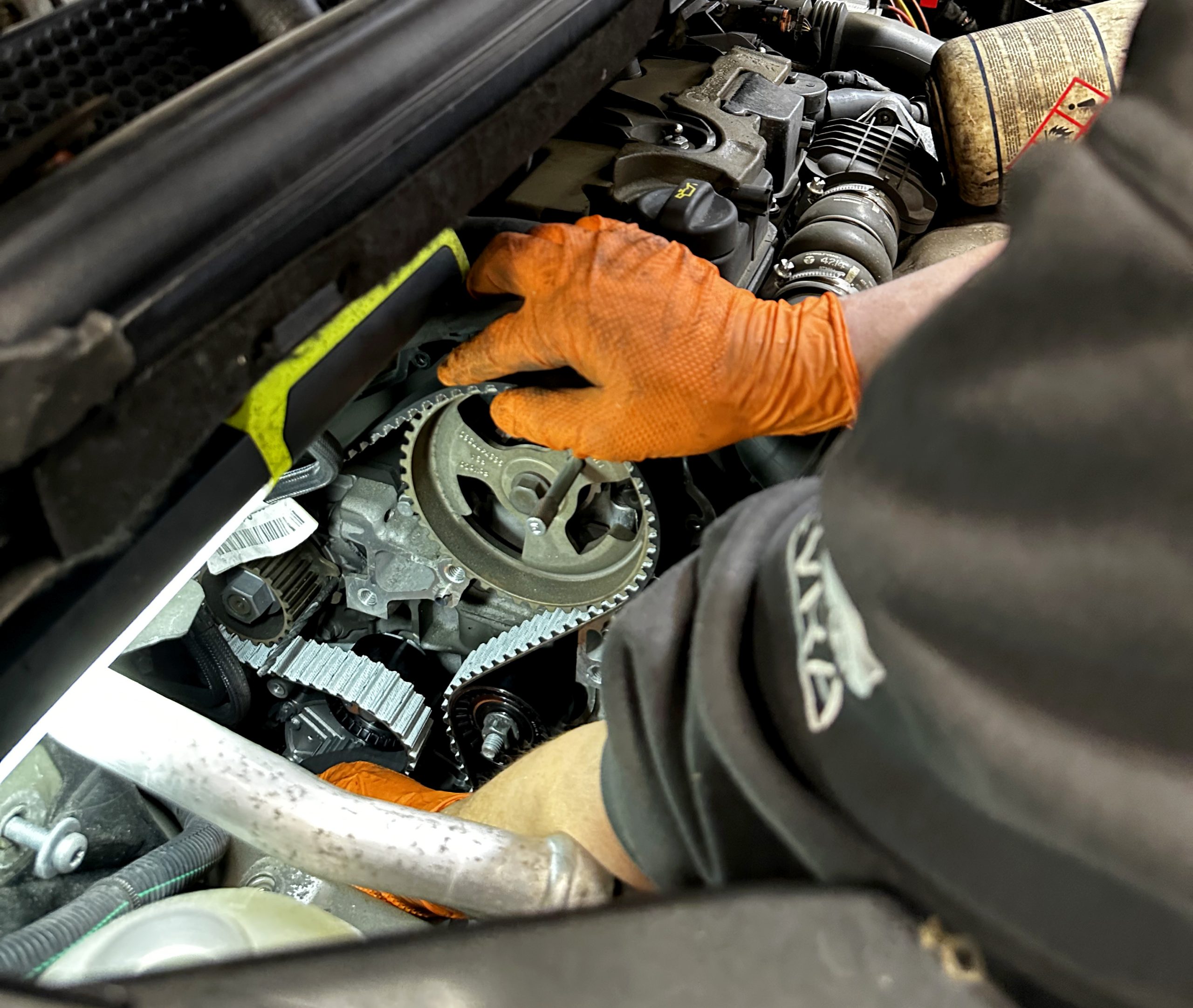Timing BELTS
What is a timing belt?
A timing belt (often called a cambelt) is one of those unsung heroes under your bonnet. You won’t see it, you probably won’t think about it, but it quietly keeps everything in your engine moving in perfect harmony. Unlike a wet belt, a timing belt is dry, and not lubricated by the engine’s oil.
A timing belt ensures your engine’s camshaft and crankshaft work in perfect unison. If that timing is disturbed, by either the belt slipping, stretching or snapping, then valves and pistons can collide, causing huge internal damage and often leading to major and costly engine repairs.
To help prevent this, manufacturers set strict replacement intervals, so sticking to them is very important.
Or call us now on 01494 444481
Need a wet belt replacement?
How do timing belts break and how long do they last?
A timing belt is a wear-and-tear component and will not last forever. There are numerous factors that can cause a timing belt to break, such as:
-
Age and mileage: With time and use, a the belt can stretch, crack, or lose teeth.
-
Driving conditions: Frequent short trips, heavy traffic, or extreme temperatures accelerate wear.
-
Oil contamination: Leaking engine oil can soak into the timing belt, reducing its lifespan.
-
Incorrect tension: If the belt isn’t correctly tensioned, it will wear prematurely.
As a timing belt operates under significant strain, every manufacturer sets a recommended replacement schedule, commonly 60,000 miles or 5 years, whichever comes first. Beyond this, the risk of failure increases, making replacement essential.
When should I change my timing belt?
We strongly endorse preventative maintenance as this investment in your vehicle provides peace of mind and prevents extremely costly repairs occurring if the belt fails, this can include a replacement engine.
Our advice is:
- Carry out a routine Interim Service every year, which includes an oil and filter change. During this service we will advise on the interval services of your timing belt.
-
With most vehicles, we recommend changing the timing belt no more than every 5 years or 60,000 miles, whichever comes sooner.
Even with this maintenance and repair, we are often finding timing belts are failing even earlier, so do please ensure you bring your vehicle to us as soon as possible if you have any concerns over the timing belt condition or are experiencing any of the symptoms we have detailed above. We can also advise you more accurately on replacement intervals and manufacturer recommendations.

Timing belt kit & water pump replacement
Some timing belts also operate the water pump. If this system is in place on your vehicle, when it’s time to replace your timing belt, we usually recommend considering a timing belt kit and replacement of the water pump at the same time.
If your belt is due for replacement, your water pump is likely approaching the end of its life too. The most thorough, reliable and cost effective repair includes the belt, idlers and tensioners, the water pump, auxiliary belt and fresh coolant.
Call us for help and advice
Not sure if your car has either a wet belt or timing belt? Some cars are driven by timing chains, simply give us a call and we can advise.
Even if you just want to drop in for a chat or give one of our friendly Service Team a call to discuss your timing belt, please do not hesitate to do so. We are here to help and support you to ensure your vehicle gives you miles of happy motoring.



